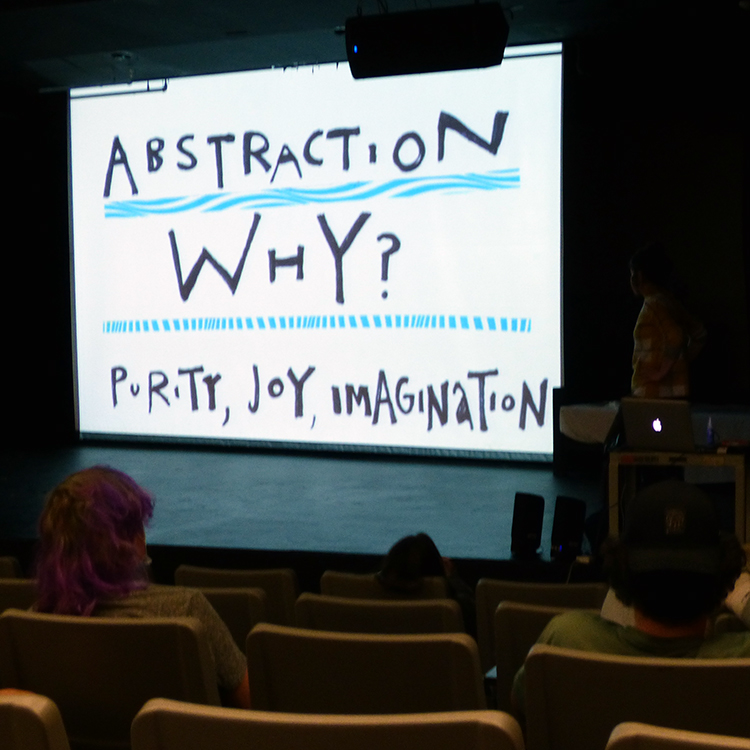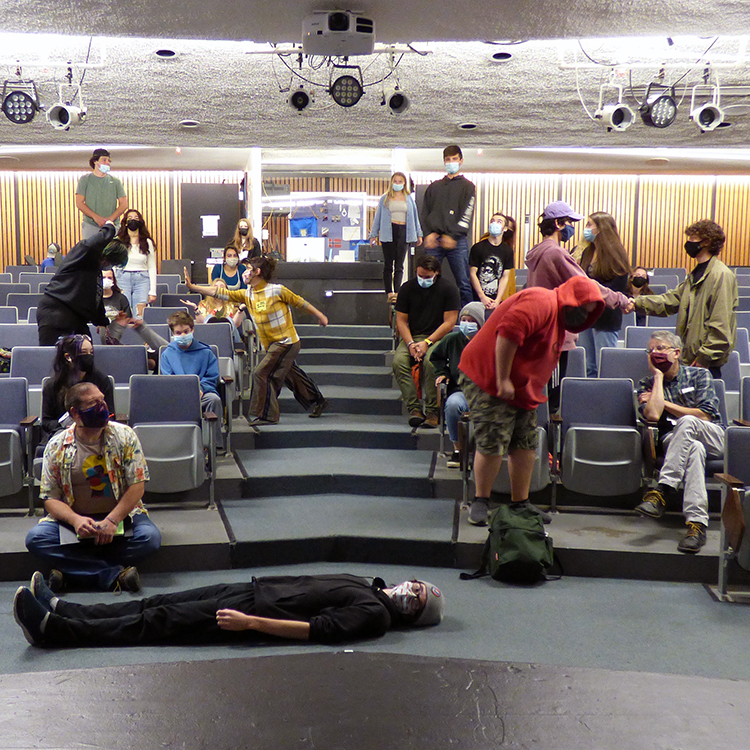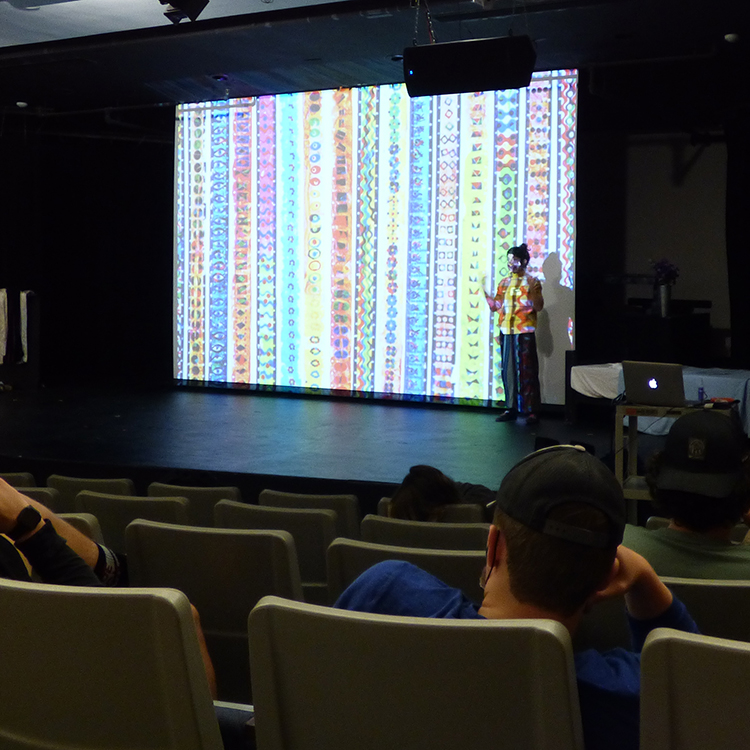Students in the Aesthetics and Ideas class, which is co-taught by Jason Lambert and Ben Putnam, welcomed a guest speaker from the MacDowell artist’s residency program on Thursday. Jodie Mack is an English-born American experimental filmmaker and animator who currently teaches animation at Dartmouth College.
In her wide-ranging presentation to the students, she addressed topics ranging from the concept of Taylorism in early animation production to the architecture of medieval churches as first, quasi-filmic experiences. Students also learned about the importance of film perforations, known as sprocket holes, in the production and projection of traditional, film-based movies as well as the tension between representative and abstract art.
Mack is fascinated by the concept of “stroboscopia,” the relationship between a series of still images and the illusion of motion that is being created through the physical phenomenon known as the persistence of vision. Central to her work is also the original meaning of the word “animation — not related to cartoons or Pixar movies, but in the sense of ‘bringing to life’ inanimate objects and concepts,” Mack noted.
Mack talked about her non-traditional, meandering educational pathway by sharing that she attended two community colleges before enrolling in a bachelor’s degree program at the University of Florida. She went on to earn her MFA in film, video, and new media at the School of the Art Institute of Chicago. “If there is anything that you should remember from my presentation,” she said, “it is that you are going to be OK, you are going to figure it out.”
Besides sharing her personal background as an immigrant and her family history, Mack connected with students by showing several of her animated films, including Curses (a music video), A Joy, and portions of her MFA thesis project Yard Work Is Hard Work.
The final activity of this truly unique TASC Talk opportunity was the taking of a series of pictures with students that she will animate and share with the class in the coming weeks.


